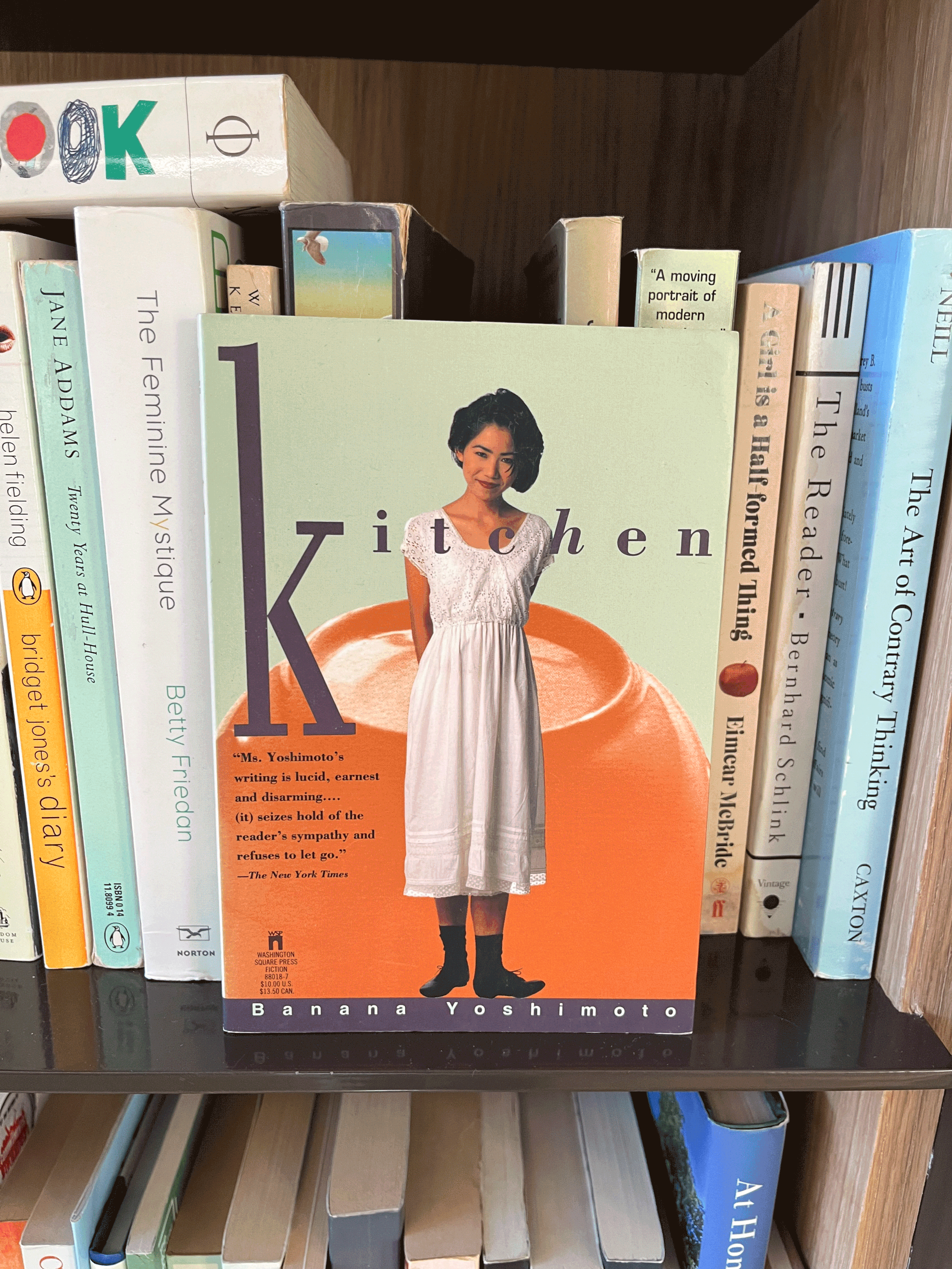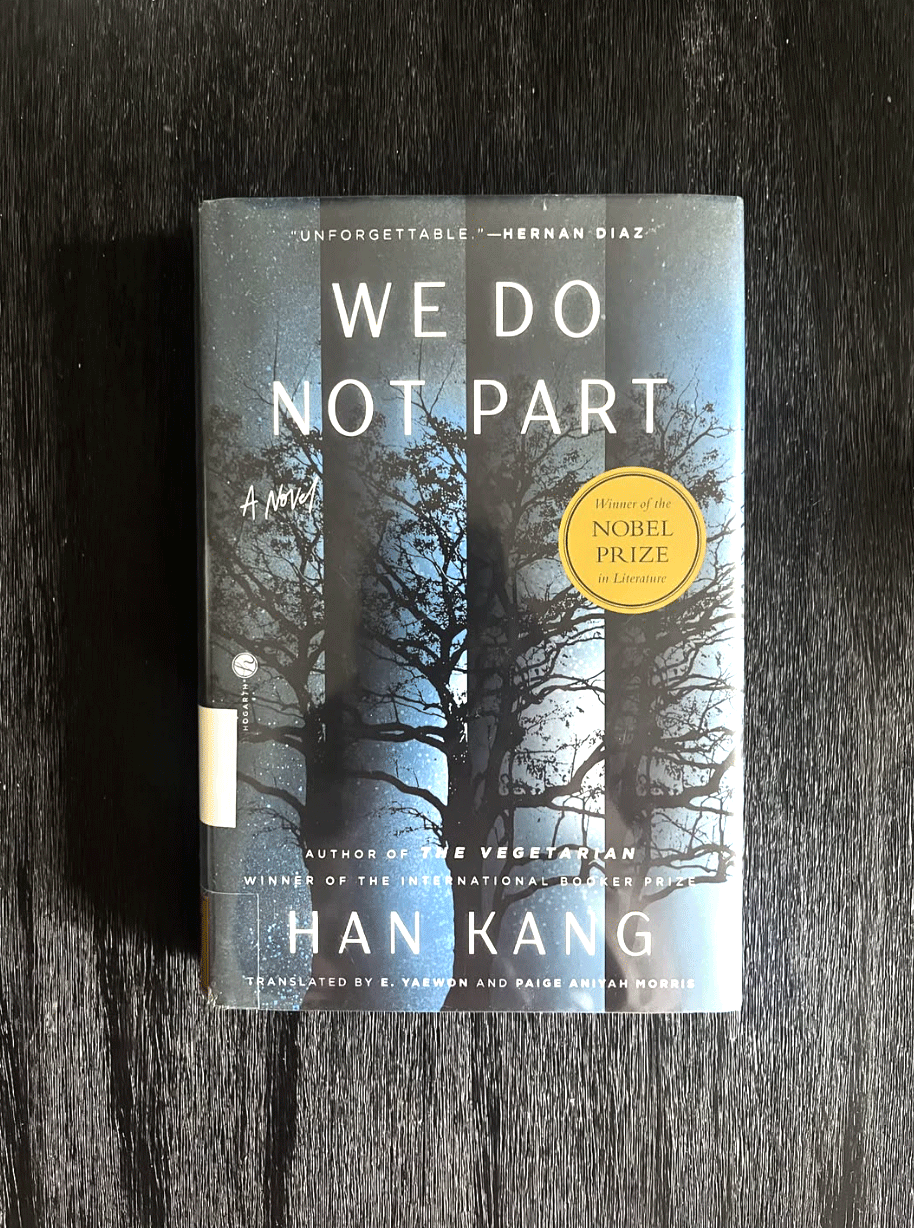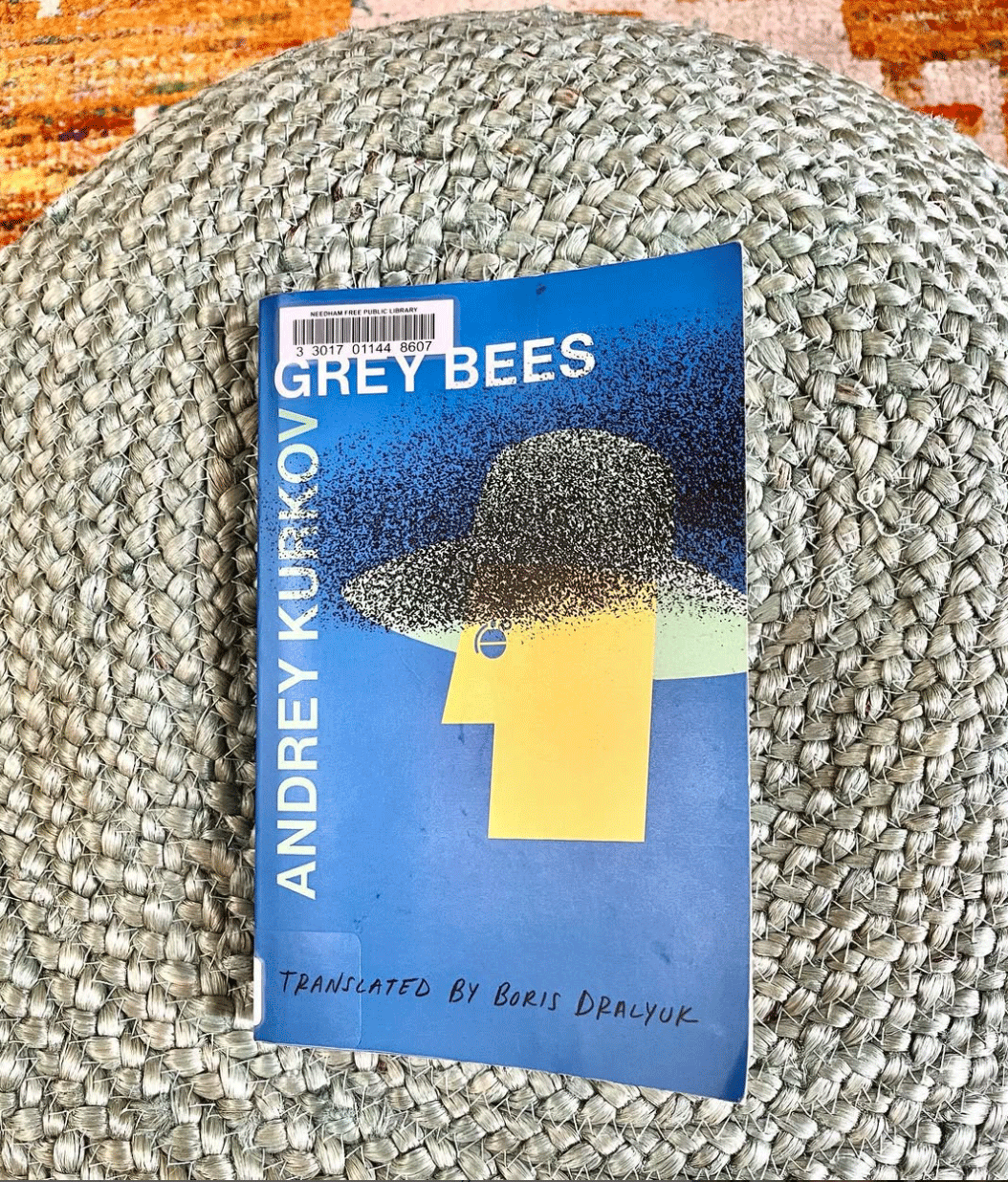
READ ALL ABOUT IT
Since 2012, I’ve been writing about books. And the act of reading. And the importance of story and narrative. But, mostly, the underlying theme of all I write is how taking a moment to stop and digest some longform text — instead of scrolling, instead of watching a video, instead of multitasking — can be one of the most grounding things we can do for ourselves. Here’s the one-stop online home for all this writing.
You can read more about me and my work by moseying over here. Want to peruse periodic “essay drops” — excerpts from my work-in-progress essay collection about Homesickness? Here ya go.

Birthday Book Recs 7/50 : Kitchen by Banana Yoshimoto
Birthday Book Recs: 7/50
Kitchen by Banana Yoshimoto

The Wall
[Some scribbled notes…the kind that get my brain going when I’m trying to figure out what I want to say:]

We Do Not Part
We Do Not Part: A fixation on hands and touch and how we can mend and create but also pierce and cut … and maybe, too, a declaration that idleness (“idle hands” and all that) can prevent something from being revealed.

Scaffolding
I wanted to say that this book hurt my feelings, with (what I thought was) that Nora Ephron phrase in mind. But actually, it turns out that the Nora Ephron book I was thinking about is called I Feel Bad About My Neck (and not something like My Neck Hurt My Feelings), so maybe I should say that I Feel Bad About This Book. I know that this is just a matter of preference because this is how I felt while living in Brooklyn.

The Extinction of Irena Rey
Knives Out, but it’s a group of translators trying to figure out where their author — a famous Polish writer named Irena Rey (“Our Author” in their parlance) — has disappeared to after they convene in a forest village between Poland and Belarus to translate her newest novel, Grey Eminence. The Extinction of Irena Rey is written by Jennifer Croft, primarily (until now?) known for her translation work — she won the Booker in 2018 for her English translation of Flights by Olga Tokarczuk. I know of Croft because of her fab work of autofiction, Homesick, which she originally wrote in Spanish. The Extinction of Irena Rey is actually a novel in a novel; Croft has masterminded the story to be “written” by an Argentinian and then “translated” to English by an American. Got that?

The Premonition
If you know me in person, have followed me for a bit, or know what I’ve been spending time writing about (homesickness), it will be no surprise why I adored The Premonition by Banana Yoshimoto, published in 1988 in Japan and recently translated to English.

Mouthful of Birds
I admit I’ve grown a bit tired of people using the phrase “fever dream” to describe a book. Are we describing a rave, a haunted house, or what? Some phrases get thrown around so much and then become somewhat meaningless and amorphous. What do they really MEAN in real-life parlance? (Is this just my issue?)

Iron Curtain
Iron Curtain by Vesna Goldsworthy is like holding up a funhouse mirror to different cultures — in this case, an unnamed Soviet Bloc country and England. (But like the novel Beyond Babylon by Igiaba Scego, Goldsworthy in Iron Curtain occasionally inserts little factoids and artifacts from other countries, underpinning the fact that even down to the most basic of things — let’s throw out food shopping as an example — everywhere has its own “way.”) Everything looks worse — or a little crazy — when viewed from a different vantage point.

Seven Empty Houses
First book of 2023: FIN. (To be fair, I had literally 3 pages left when I put it down yesterday. What is my problem.) Seven Empty Houses, by Samanta Schweblin, translated by Megan McDowell.

The Days of Abandonment
On the back of this book — The Days of Abandonment by Elena Ferrante — a blurb by Mona Simpson states, “[Ferrante] is the Italian Alice Munro.”

Salka Valka
For those who haven’t seen my Instagram stories in the past month: I have finished Salka Valka by the late Icelandic novelist Halldór Laxness, and it is Annie Proulx’s “favorite Halldór Laxness book” according to a back blurb on this new translation by Philip Roughton and published by Archipelago Books. I don’t think many people outside of certain literary circles even know who Halldór Laxness is (I was in this camp, for sure), so I got a chuckle about how the heck had Annie Proulx (Barkskins, Brokeback Mountain, etc.) read enough Halldór Laxness books so that she could say Salka Valka was her “favorite”??

Grey Bees
I first learned about Grey Bees by the Ukranian writer Andrey Kurkov back in June. (You can check out my post from June 27, which was inspired by an interview with Kurkov, in which he said, “They think you cannot mix culture and politics. I said, maybe *you* cannot. I can!”)

Chinatown
I love thinking about language, although — sad face — I’m only fluent in English. (This could’ve gone differently. Dear young people: Take advantage of your ability to converse and get around in a different language and keep using it lest you become like me…aaaaaand probably a large swath of Americans.)

Homesick
Homesick is a memoir by the writer and translator Jennifer Croft. (She won the Man Booker International Prize in 2018 for her translation of Flights, by Olga Tokarczuk.) If I had to use just two words to review it I’d say, “Mic drop.” (Alternate reasoning: If I were Michael Scott and tasked with reviewing books.) I’m not trying to be glib, but if ever there were a time to use “mic drop” in full sincerity, it would be in reference to this book, a memoir/”real-life novel” with photographic elements. I’m truly amazed by it. (As is the pooch, apparently.)

Mixing Culture and Politics
“They think you cannot mix culture and politics. I said: Maybe *you* cannot. I can!” – Andrey Kurkov

If You Kept a Record of Sins
This is a beautiful book.

Mirror, Shoulder, Signal
Mirror, Shoulder, Signal by Danish writer Dorthe Nors. File under: Scandinavian literature can needle human emotion in a spectacular fashion – probably because it does so in an almost-but-not-quite dull manner. (One of the best books I’ve ever read is The Faster I Walk, the Smaller I Am by Norwegian author Kjersti Skomsvold.) I checked out the (few) 1-star reviews of this book after finishing, and as I predicted, they declared it “slow” and “meandering.” Well, I guess I’m a one-star gal because that’s what makes the novel work.

The Economics of Moving
There’s an economic principle called Pareto Efficiency that essentially states that you cannot add to one individual’s set of resources without taking away from another’s set of resources. I’m not an economist; although I studied enough economics in college to qualify for a minor, I’m really a humanities person, so leave it to me to think about how this principle applies in emotional, rather than financial, scenarios. As a result, I’ve seen each place I’ve lived—a collection of different environments—as experiences meant to be kept separate. I’ve always seen it this way: If I pour my energies into life in Dublin, all the previously exerted energies in New York, for instance, drizzle down some sort of drain, as if they’re needed elsewhere.

